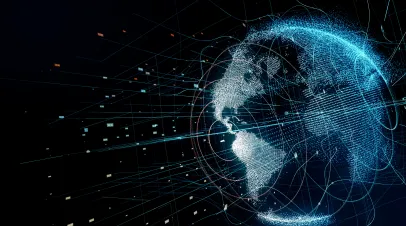Navigating Geopolitics in the Digital Age
During the event, Warner noted that technology is changing national security considerations in a way that requires government and industry to work together to spur US competitiveness. He also lamented Washington’s inability to lead on setting rules for game-changing technologies such as artificial intelligence (AI) and to implement laws that prohibit inappropriate uses of such technologies.
Regulating AI
“A year ago ... I thought that AI was simply a great branding tool for advanced statistics. ... Starting in the fall I moved from ‘this is advanced statistics’ to ‘holy heck’. This is the biggest innovation in our life, bigger than the internet, bigger than the wireless revolution, you name it,” Senator Warner said.
The revolutionary technology needs common rules, especially given the rapid advancements being made not only in leading countries in technology development, such as the United States and China, but also in countries not usually recognized as leaders in AI, such as the United Arab Emirates and France. The EU and China have responded by developing draft frameworks for AI usage, but the United States lags in this endeavor, in part because the US federal government lacks a common definition of AI among its many departments and agencies. Warner voiced his support for creating an “independent AI entity” to work with US regulatory authorities since Congress lacks the needed technical expertise in a “field that is moving this quickly over just the last nine months”.
Redefining National Security
“National security in 2023 ... is very different than it was in 2013 or 2003. ... A lot of that is due to competition with China,” Warner noted, adding that national security in the past focused on ideological threats, such as those posed by the Soviet Union. Today, however, China is an economic rival that competes in technological innovation. To confront this, he suggested focusing on the distinction between authoritarian and non-authoritarian states rather than framing the issue in “West versus East” terms.
Warner also called for greater US participation in international standard-setting bodies. “America, in particular, had always expected [that] even if we didn’t invent the technology, we would get to set the standards. ... China was starting to run the table not only on Huawei, but also [on] setting the rules and regulations. I think it was a wake-up call.” This realization has prompted some Republicans, previously opposed to industrial policy, to recognize the need for government investment in this competitive sector.
Developing Industrial Policy
To bolster US competitiveness and supply chain security, Warner emphasized the importance of getting industrial policy right, and outlined three public-private models to achieve this goal:
-
direct appropriation of funds, such as in the US CHIPS and Science Act
-
tax code changes, such as in the Inflation Reduction Act
-
advanced market commitments, such as the guaranteed government purchase of the COVID-19 vaccine to incentivize industrial innovation
These models could serve together as a roadmap for investment in emerging technologies such as AI and synthetic biology, and in advanced energy technologies.
Warner also discussed his committee's previous bipartisan "classified roadshow" briefings that brought together a bipartisan group of senators with the intelligence community, industry leaders, and academics to discuss the risks of economic engagement with China. He proposed "a classified set of road show briefings in every capital in Europe” to address supply chain risks, share and declassify information, and promote economic partnerships to protect against authoritarian dominance.
Addressing Cybersecurity Risks
Reflecting on recent cybersecurity incidents, such as the recently discovered breach by Chinese hackers of US government email accounts, Warner lamented the lack of progress in implementing key pieces of legislation that he sponsored. The Cyber Incident Reporting for Critical Infrastructure Act of 2022, for instance, mandates such reporting by critical infrastructure owners and operators but is years away from being enforced. Similarly, implementation of the Internet of Things (IoT) Cybersecurity Improvement Act, which sets minimum cyber standards for federal IoT device purchases has made, “at most, incremental progress". Warner assessed the federal response to cybersecurity challenges as "fairly pitiful”.
The senator also broached the link between regulatory gaps and cybersecurity risks, including China’s use of the cloud to evade transaction restrictions. His proposed RESTRICT Act would allow the Department of Commerce to identify high-risk business transactions with adversarial countries that are conducted through platforms such as TikTok. The bill would also impose civil penalties for violations.
The event made clear that despite current bipartisan efforts to regulate technologies and lead on establishing standards, the United States needs to act quickly to implement and enforce regulation that addresses national security, cybersecurity, and AI risks.
Further Resources
The GMF Digital Semiconductor Investment Tracker follows investment spurred by US and EU industrial policies on semiconductors.
The New American Foreign Policy of Technology, a recent GMF Digital report, proposes three new institutions to navigate the impact of evolving technologies on the geopolitical landscape.

